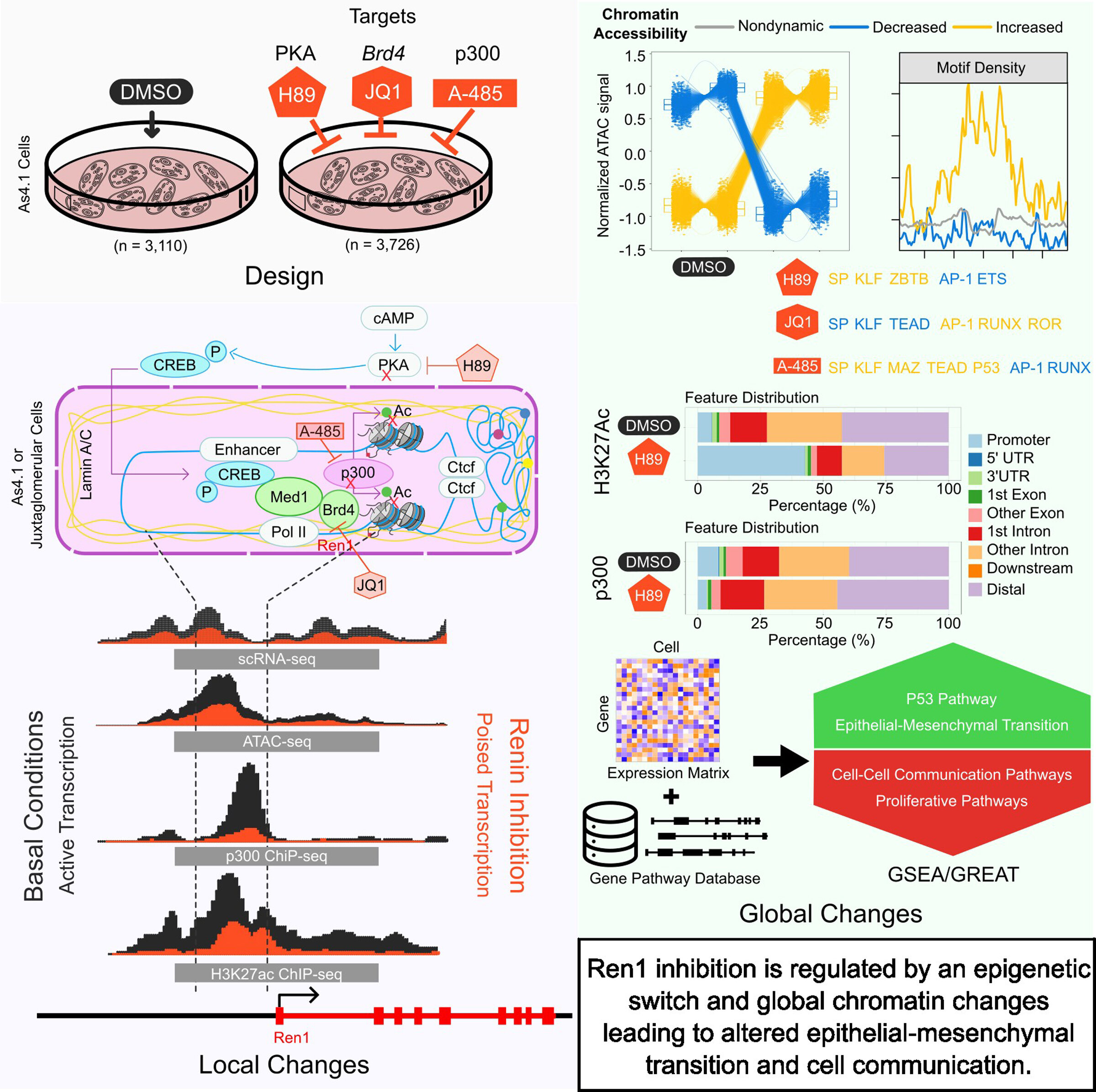
University of Virginia School of Medicine researchers have discovered how certain cells have the amazing ability to transform their function to help our bodies control our blood pressure.
These cells include smooth muscle cells, which line our arteries. Normally, smooth muscle cells help control blood pressure by contracting and relaxing. But when blood pressure levels decrease significantly and for long periods, smooth muscle cells in the kidney, and some other kidney cell types, can take on a whole new job: producing renin, a substance typically manufactured in specialized cells in the kidneys to help maintain blood pressure.
Scientists have been uncertain what genomic triggers regulate this sudden shift to renin production, but the UVA researchers have found answers, identifying a crucial biological “switch” that controls the changeover and explains the cells’ secret superpower.
“Discovering how the switch works will help us understand how our bodies control blood pressure,” said researcher R. Ariel Gomez, MD, of UVA’s Child Health Research Center. “Knowing how vascular cells change their identity could help develop new medications to treat high blood pressure and vascular diseases.”
The study is published in the journal Hypertension.
Understanding blood pressure
Gomez and his collaborator Maria Luisa S. Sequeira-Lopez, MD, are leading researchers into the role of renin in blood-pressure control. For their latest investigation, they worked with UVA senior scientist Jason P. Smith, Ph.D., and collaborators to better understand how certain cells can suddenly remember how to make renin long after they have stopped doing so.
The UVA team identified several biological mechanisms involved in this transformation. For example, the researchers identified nine genes that play key roles in the three biological “pathways” that regulate renin production. These genes are responsible for causing smooth muscle cells to stop producing renin and for triggering them to resume when needed. The scientists note that while such cells stop producing renin naturally, they remain “poised” to jump back into action.
Further, the scientists discovered factors that trigger the genes to resume renin production. This “epigenetic” switch is the lynchpin to understanding how renin production is controlled in these cells that don’t normally produce renin.
“We expected to find the region in your genome where this gene is located to be inaccessible when renin is turned off, but it turns out this spot stays generally accessible in cells that are ready to be called into action when more renin is needed,” Smith said.
“Ultimately, since renin is so critical for our own health, a better understanding of how our bodies control its production may prove foundational to how we treat hypertension [high blood pressure] and the long-term effects of common blood pressure medications on kidney function and disease.”
The UVA researchers’ work provides a comprehensive map of this form of renin regulation, they note in a new scientific paper. The findings give important direction to future research, they say, and could provide important insights into the progression of dangerous kidney damage called fibrosis. It’s possible, they say, that targeting the renin-control processes could lead to new treatments for high blood pressure and cardiovascular disease.
“Now we want to identify markers and potential targets to mitigate and hopefully control unwanted effects of chronic stimulation of the renin cells,” Sequeira-Lopez said. “It is crucial to understand the basic secrets of our cells to design more and more effective therapies with less or no adverse effects.”
The research team consisted of Smith, Robert Paxton, Silvia Medrano, Nathan C. Sheffield, Sequeira-Lopez and Gomez.
More information:
Jason P. Smith et al, Inhibition of Renin Expression Is Regulated by an Epigenetic Switch From an Active to a Poised State, Hypertension (2024). DOI: 10.1161/HYPERTENSIONAHA.124.22886
Citation:
Discovery of important blood pressure ‘switch’—how some cells remember to make renin (2024, September 26)
retrieved 28 September 2024
from https://medicalxpress.com/news/2024-09-discovery-important-blood-pressure-cells.html
This document is subject to copyright. Apart from any fair dealing for the purpose of private study or research, no
part may be reproduced without the written permission. The content is provided for information purposes only.

